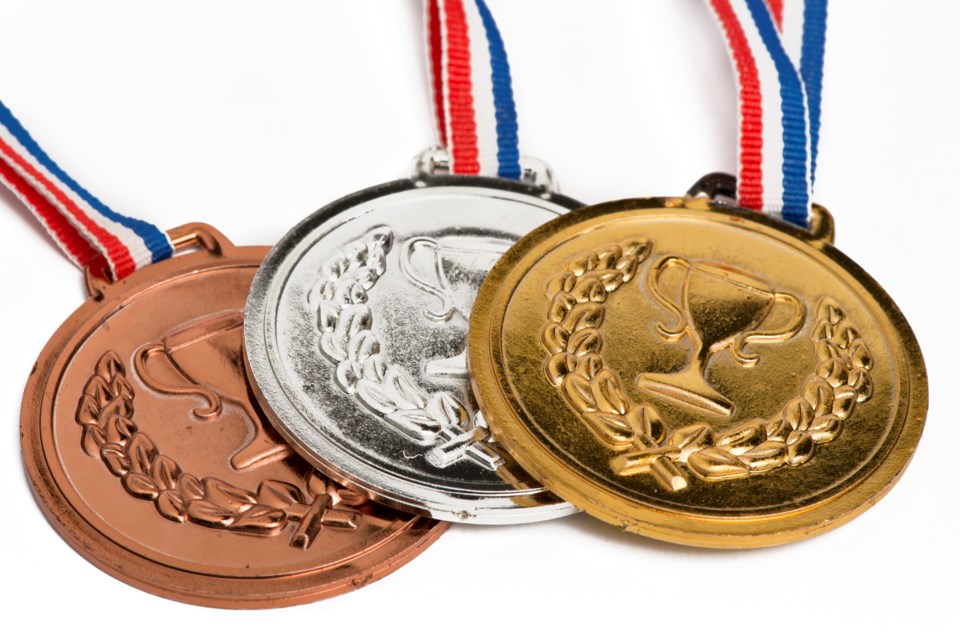Beyond the Olympic’s facade of glitz, glamour and gold there’s a glaring and controversial regulation — the International Olympic Committee’s (IOC) . Rule 50 prohibits athletes from demonstrating during competition or on the podium.
Two years ago, IOC member stated that “athletes remain free to express their opinions in press conferences, in media interviews and on social media.” But the is clear — all Olympians must “comply with applicable national laws.”
This includes forgoing their right to freedom of speech and expression while in China because of the regime’s against “picking quarrels and provoking trouble.”
With the 2022 Beijing Olympics looming, Pound has been that “there is absolutely nothing wrong with China” as an Olympic host.
If Pound’s commentary leaves you with an unsettling sense of déjà vu, there’s a good reason for that. Addressing 205 national Olympic committees before the 2008 Beijing Olympics, IOC President Jacques Rogge saying:
“A person’s ability to express his or her opinion is a basic human right and as such does not need to have a specific clause in the Olympic Charter because its place is implicit.”
In addition to restrictions imposed by the IOC and China, many active athletes are contractually bound by their Olympic federation’s code of ethics to refrain from making “” on executive decisions.
China’s assault on athlete rights
Even if the IOC gave athletes the green light to protest, such actions would be ill-advised since China’s authoritarian regime is notorious for its .
The IOC’s silence suggests that it is aligning itself with China rather than championing Olympic athletes, while stifling growing criticism regarding its own hollow commitments to human rights.
Dutch officials recently advised athletes and use only team-provided cell phones in order to avoid Chinese espionage.
at the University of Toronto’s Munk School of Global Affairs and Public Policy recently determined that an application all athletes are required to download for submitting health and customs information has a “.”
On the same day the security flaw was revealed, Beijing Organizing Committee official Yang Shu explained that athletes could indeed be to journalists and on social media.
In fact, the committee will have departments for the duration of the Games.
But there’s a lot for athletes to comment on — from the obvious attempt of Chinese authorities to to the well-documented human rights abuses unfolding against and the all-too-common .
The IOC Athletes’ Commission
The IOC Athletes’ Commission is a group of retired athletes whose is to ensure that athletes’ viewpoints are “at the heart of Olympic movement decisions.”
The effectiveness of the Athletes’ Commission is limited at best. As explained, many members have experienced powerlessness at the hands of international federations and are unlikely to “rock the boat,” while others “don’t want to bite the hand that feeds them.”
Whether Athletes’ Commission members are free to express their views is also an open question.
In early 2020, as the world dealt with COVID-19, some athletes challenged the IOC’s plans to host Tokyo 2020 in August. Canadian Athletes’ Commission member Hayley Wickenheiser . The IOC promptly saying it was “a pity” that she spoke out without asking them first.
: “I didn’t know free speech had to go through the IOC.”
Clearly, the IOC wants to control athletes’ public statements. When R.A. was about to publish a critical article in an Olympic magazine, they were subjected to an unsuccessful attempt at censorship by a senior IOC member. He phoned R.A.’s private number to persuade them to tone down the article, and followed up by emailing a document that he thought would demonstrate that the critique was flawed.
Solidarity: Athlete advocacy groups fight back
The Olympic industry may not enjoy its privileges for much longer. Athlete advocacy groups and athlete unions — like the , , and others — have been , with .
The IOC has been the target of global criticism, inside and outside of sport, because of its recent selection of — Beijing in 2008 and 2022, and — with full knowledge of the human rights violations perpetuated by these governments.
Since relies on winning hearts and minds, can it survive the damage to its brand that the protests of athletes and activists are generating?
![]()
The authors do not work for, consult, own shares in or receive funding from any company or organization that would benefit from this article, and have disclosed no relevant affiliations beyond their academic appointment.




